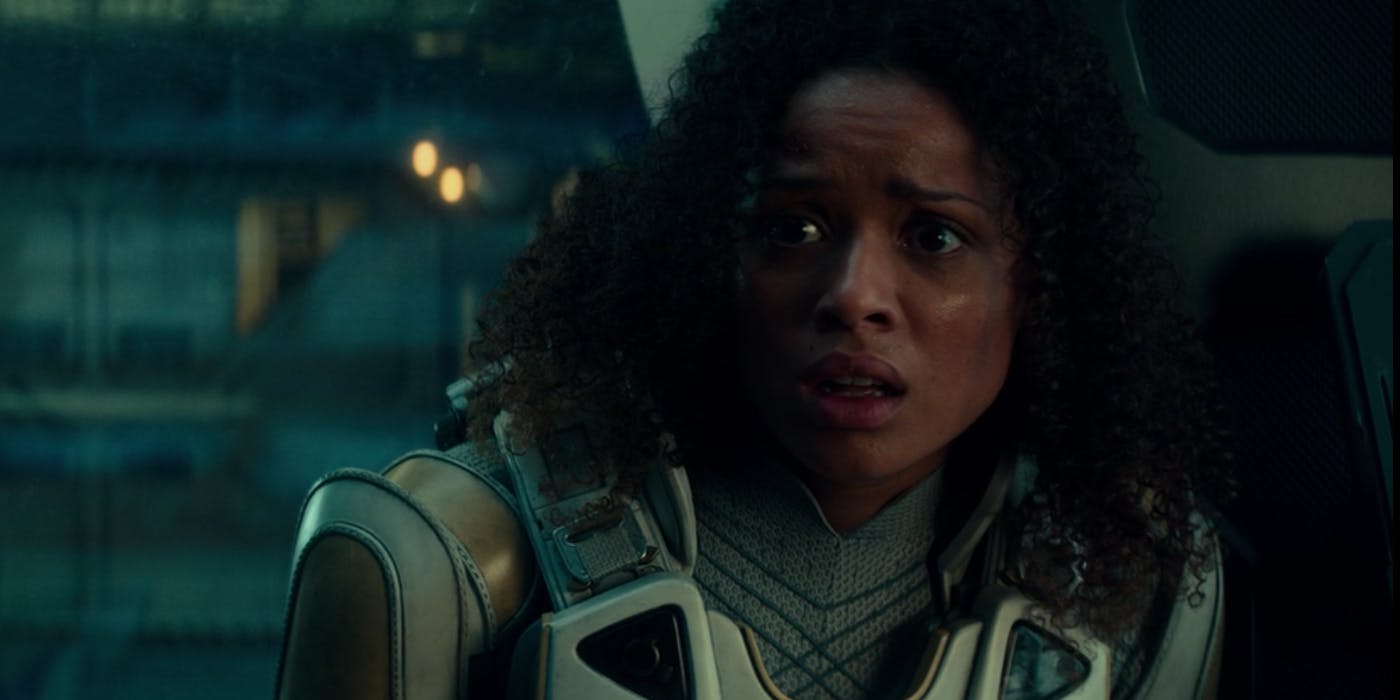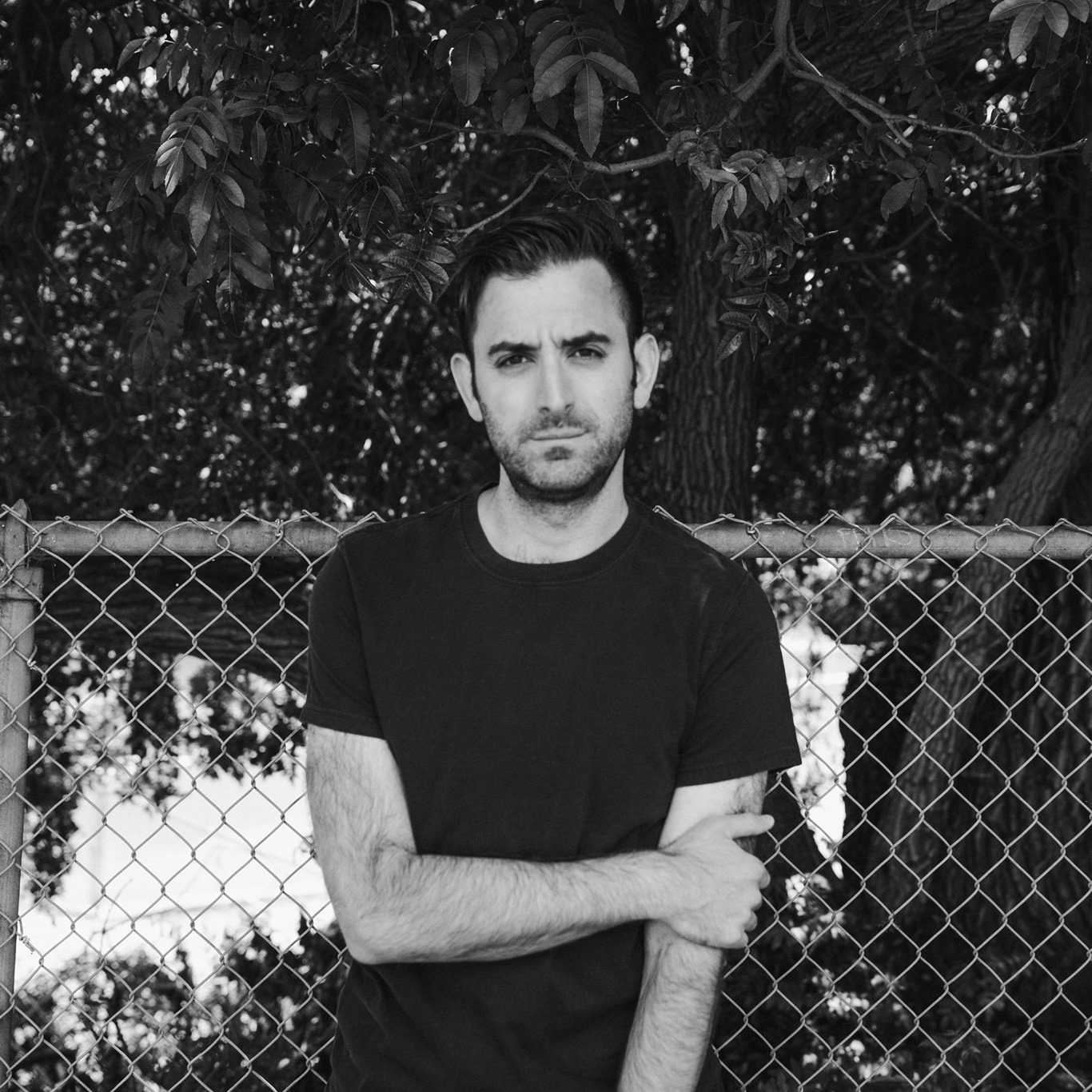If you’ve read up on the hubbub surrounding the newest entry into the Cloverfield franchise, The Cloverfield Paradox, then you’ll know that Netflix did its job well. It duped millions of people into staying up late to watch a pre-supposedly “studio produced and polished” sci-fi genre epic that ties into one of those newfangled shared universes. Something was a bit fishy, though. Why would Netflix be releasing a big budget studio picture produced by Paramount? Because Paramount didn’t believe in it, and for good reason. The Cloverfield Paradox is the antithesis of 10 Cloverfield Lane, it doubles down on the fan servicing to try to cover up the fact that it can’t stand on its own two legs. It’s a haphazardly put together mess of genre influences that almost never cohere. By pandering to fans of the franchise, Paramount and Netflix have found perfect marks: People eager to be part of a pop culture moment. I know, because I’m one of them.
Hamilton (Gugu Mbatha-Raw) is a communications expert for a company tasked with finding a new energy source for earth, as fossil fuels are running out. She leaves her husband for a scientific mission on a space station. The crew’s task: To tap into a new energy source by using a particle collider. As is with most space films, things go awry in the way of transporting the crew to an alternate dimension. In their dimension, creatures are wreaking havoc. In the alternate dimension, none of that has happened. Now they must fight to get back to their reality while also battling with a mysterious stowaway and half-baked genre tropes.
The stellar cast gets squandered with every twist and turn. The Cloverfield Paradox aspires to be something from Christopher Nolan’s oeuvre insomuch that it wants to land these grandiose dramatic movements about the importance of mankind. What it doesn’t do is provide the characterization and motivations to make those movements land. Hamilton lost her children in a deadly fire and in the alternate dimension, her children are still alive. The dramatic buck lands on Mbatha-Raw’s back and her talent lies in almost making these moments believable. Her acting prowess is one of the only things that makes everything serviceable. If it weren’t for her, the film would be resting completely on the laurels of its genre conceits. And unfortunately for those, they’re not really interesting either.
I’d liken the story to another Netflix property, Black Mirror. It’s the kind of project that wants to use convention to usurp the audience into believing in its bigger ideas. Unfortunately for The Cloverfield Paradox, it can’t quite decide on what idea it’s going to ride for. And in the bitter end, it wants to remind you that there will be more. Much, much more.
The Cloverfield Paradox isn’t exactly the best showcase for Julius Onah’s talents, either. The whole film is garishly bright and not fully realized in terms of visuals. Many of the sweeping camera movements seem to come out of the J.J. Abrams handbook for blockbuster filmmaking. Much of it is too eager to please a wide audience that it sacrifices personality in exchange for droll retreading of its peers. Just recently, Life and Alien: Covenant both used the same framework better than this. They’re two films that understand genre and zero in on what exactly made them so damn entertaining in the first place. This is just conscious enough to understand those influences but doesn’t have the balls to do anything with them.
The stellar cast also gets wasted. Not because they have to carry out the slog of a story, but because they’re never really let to put their own imprint on the characters. Their respective arcs come off as clinical and cold, even when they’re called upon to carry out the next twist. You’d think a film that involves Chris O’Dowd’s reanimated dead arm saving the day would be more entertaining. You’d be wrong.
An important thing occurred to me as I watched this, though: If we’re to build these universes by interconnecting multiple projects, then maybe we should have good reason to do so. 10 Cloverfield Lane is a confidently directed thriller first and a Cloverfield movie second. The Cloverfield Paradox is what happens when creators have delusions of grandeur about just how important their franchise is to pop culture. The original 2008 film was and still is a very fun diversion that used smart marketing tactics to drum up anticipation. It didn’t build some crazy fleshed out foundation for someone else to build upon. Its pleasures were mined from obsessing over the tiniest details; Making the audience peel them back to reveal fun little anecdotes. Maybe there was no reason to expand upon those anecdotes, as seen here.













